ALONG THE ST LOUIS RIVER — It was one of the last days of summer and Pam Zylka was nodding off, sitting in her folding lawn chair, basking in the warm afternoon sunshine.
She opened her eyes, peeking out from under the visor of her leopard-patterned baseball cap, just enough to check the line at the end of her fishing rod and see that nothing was happening.
ADVERTISEMENT
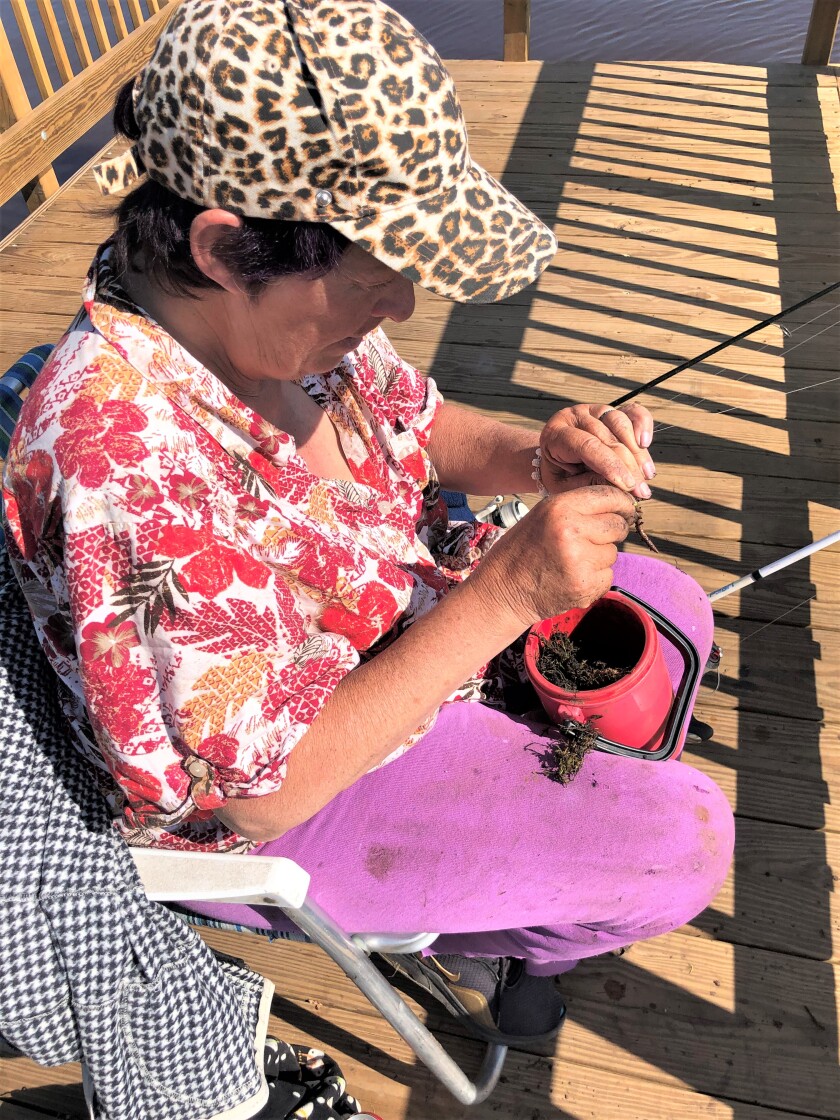
“When you fall asleep out here and wake up, you’re fishing. And it’s a dream come true,” Zylka said with an understated chuckle.
This is Zylka’s favorite spot to fish, maybe her favorite spot anywhere, the floating public fishing pier off Indian Point on the western Duluth waterfront along the St. Louis River Estuary.
The pier is new this year, thanks to the Minnesota Department of Natural Resources, and is available both to local anglers, with access off the Waabizheshikana trail, and to campers at the city’s Indian Point Campground.
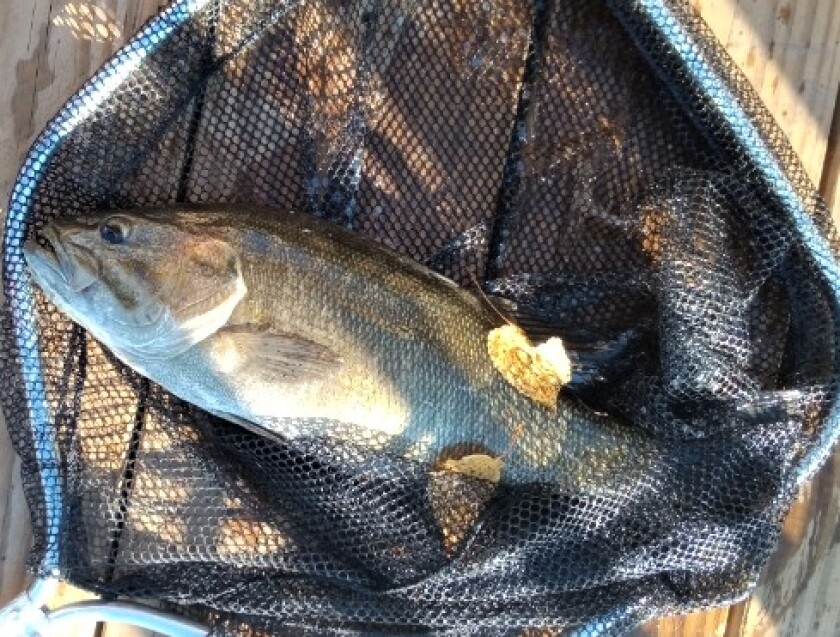
Zylka, 65, is there almost every day from May through October. Before this pier was available, she’d fish at Boy Scout Landing out past the Gary-New Duluth neighborhood. But they moved the fishing pier away from that site a few years ago and heavy boat traffic can make it a hectic place to fish from shore.

“This is nicer. It’s quiet here, peaceful,” Zylka sai. She picked up her rod and slowly started reeling in, sensing something was nibbling her nightcrawler.
Gulls, great blue herons, ducks, eagles and geese are frequent visitors with Zylka here. She’s heard beavers slap their tails and nearly ran into a skunk walking in while it was dark once.
On most days she’s the only person here, interrupted only by the fish.
ADVERTISEMENT
“Come on fish, take it. … Oh, he took the worm. This is personal now. This is war,” Zylka said, again with her trademark chuckle.
While some people have $100,000 walleye boats, or lake homes or cabins as their gateway to fishing, Zylka's passport to the outdoors is a Duluth Transit Authority bus pass.

Nearly every day, Zylka wakes up by 3 a.m., heads out of her Lincoln Park home and walks 10 blocks downhill to catch a DTA bus to ride west. Often she’s the only person on the first bus in the morning, which hits her stop at 4:38 a.m. On the walks to the bus stop, she might stop at a neighborhood yard, or in the campground when she gets there, to pick nightcrawlers in the dark. She picks all her own so she doesn’t have to pay for bait.
“I like mornings here. … I haven’t missed many days — maybe 10 all year,” she said.
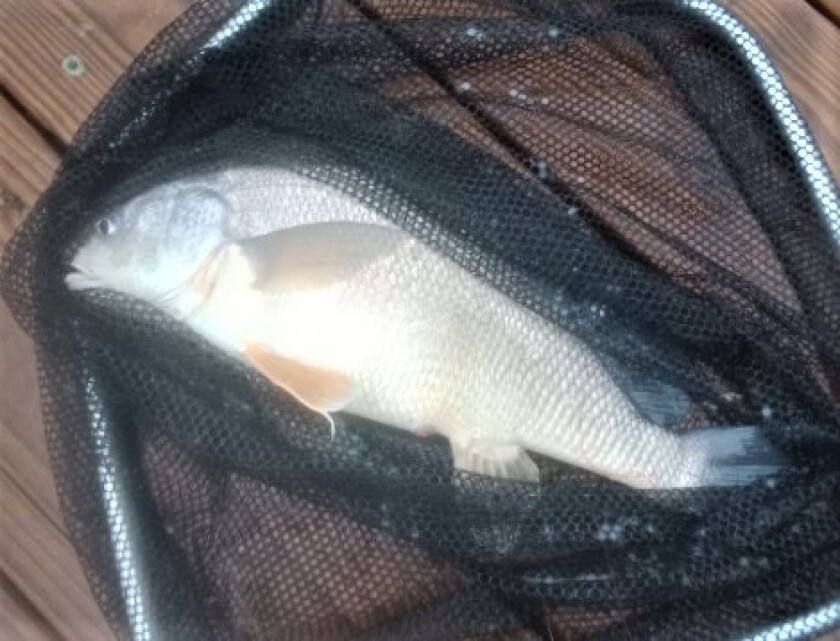

She starts when the ice melts in spring, even before the walleye opener, when only rough fish and panfish are legal game, and will fish until the snow flies or she just can’t handle the cold. Her hands are the first to say it's time to quit for the season.
Zylka suffered a stroke in December 2006, her husband, Mike Zylka explained. Since then, fishing has been her summer escape. (In winter, she crochets elaborate tablecloths.)
“I get confused easily, and exhausted. ... I try to keep a schedule, a routine, and fishing is my routine,” Pam Zylka said while re-baiting her hook. “I have problems remembering things, short term. … Things get jostled around.”
ADVERTISEMENT
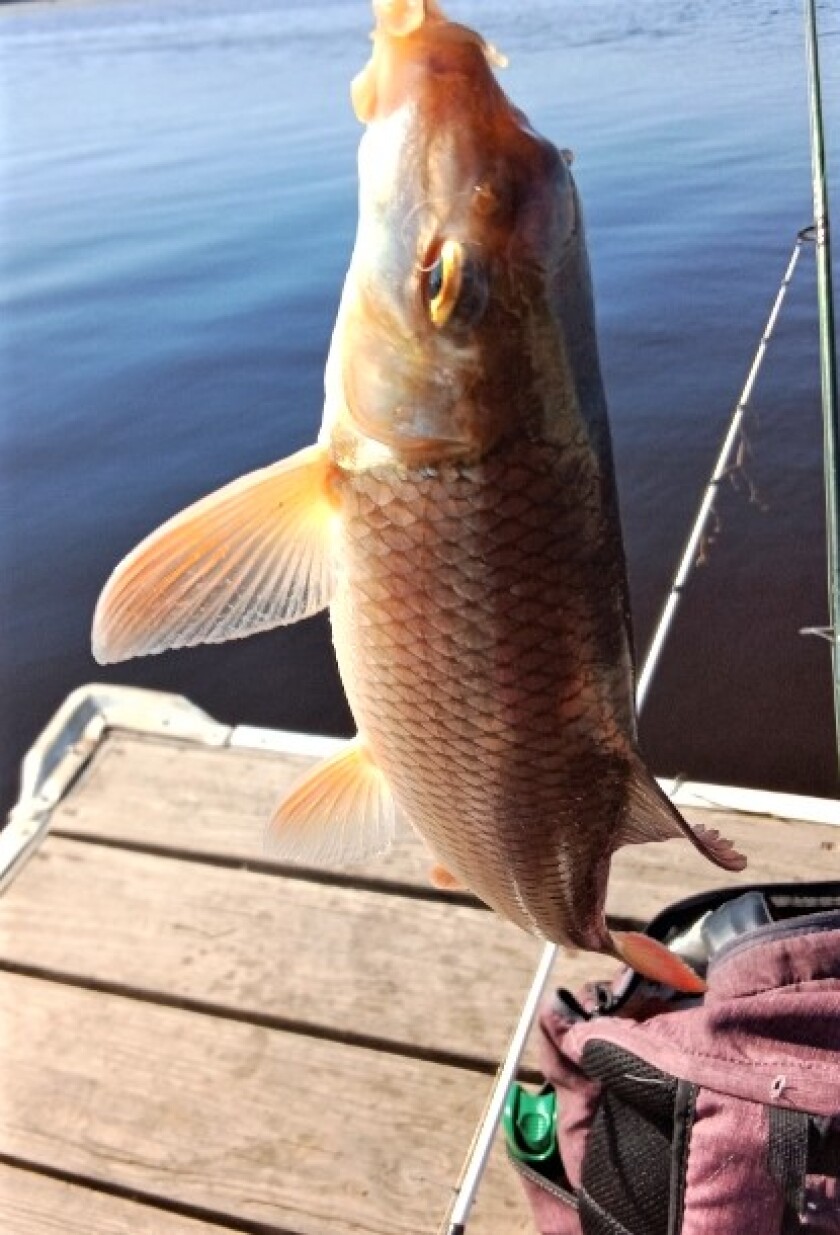
Mike Zylka said he doesn’t enjoy fishing. The couple’s been married since 1992.
“I don’t much like her going down there alone all the time. But what can I do? She loves it. Fishing is her life,” Mike said, adding that he may go with Pam on occasion and read while she fishes.
“Fishing is not my thing," he said. "But it’s definitely hers … and she’s good at it. I consider her a professional amateur.”
Pam’s gear is simple and a bit worn: taped-up spinning reels and rods with 15-pound test line, an egg-shaped weight and plain hook baited with a crawler. She throws it out and waits.
She is very good at waiting.

“I usually get a few. I don’t get skunked very often,” Zylka noted.
On that day, she had caught a smallmouth bass but nothing else. Perch and suckers are regulars. Pike are rare. The estuary holds a potpourri of fish species, and Zylka has caught almost all of them except a muskie. Yes, she’s landed a few good walleyes. But one of her favorite fish to catch here are sturgeon. She’s landed them bigger than 40 inches, she said, grabbing them by the tail to get them out of the water.
ADVERTISEMENT

“I had a sturgeon on the other day that jumped and spit my hook,” she said. “That would have been sturgeon No. 9 for the year for me if he would have stayed on.”
She's also caught catfish, sucker (up to 15 pounds), ruffe, goby, perch, smallmouth bass, crappie (up to 16 inches) carp and drum (also known as sheepshead), as well as freshwater eel (very slimy, she noted) and painted turtles.
“Drum are really fun. They’re one of my favorites, too,” she said. “They don’t jump, but they pull hard.”
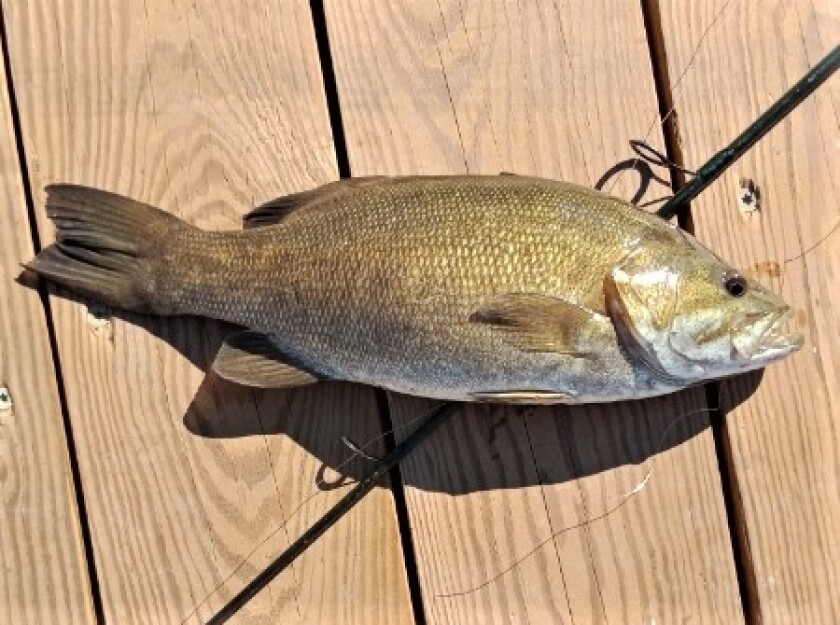
All of the fish she catches are released.
“It got where I didn’t want to clean them any more. The whole house would stink like fish,” she said, noting she also got some cold stares from people when she’d bring fish home on the bus. “And I felt sorry for the fish on the stringer. My heart would go out to them. So I let them all go now.”
Zylka may bring a can of pop with her out to fish each day, but she usually doesn't bring much food. She often sits much of the day, spending eight or nine hours on the pier without leaving.
“I don’t get very hungry out here,” she said.
ADVERTISEMENT

She adds sweaters, scarves and a warm hat as October mornings cool off fast. If it rains hard, she will head home early. She usually tires by early afternoon and walks the mile or so back to Grand Avenue for the bus ride east to Lincoln Park. There she transfers to another bus to take her the 10 blocks up the hill.
“I could walk up, but the bus is easier,” she noted.
Fishing, Zylka said, offers her life a daily dose of nature therapy.
“I try to fish every day. I find peace here. I don’t think about my problems when I fish,” she said. “I love it.”










